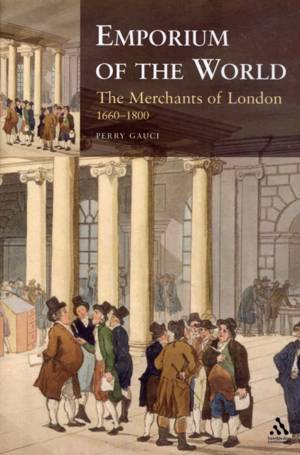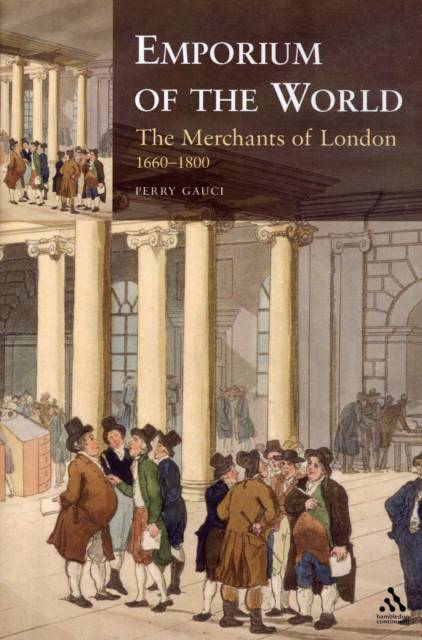
Bedankt voor het vertrouwen het afgelopen jaar! Om jou te bedanken bieden we GRATIS verzending (in België) aan op alles gedurende de hele maand januari.
- Afhalen na 1 uur in een winkel met voorraad
- In januari gratis thuislevering in België
- Ruim aanbod met 7 miljoen producten
Bedankt voor het vertrouwen het afgelopen jaar! Om jou te bedanken bieden we GRATIS verzending (in België) aan op alles gedurende de hele maand januari.
- Afhalen na 1 uur in een winkel met voorraad
- In januari gratis thuislevering in België
- Ruim aanbod met 7 miljoen producten
Zoeken
€ 356,45
+ 712 punten
Omschrijving
This book examines one of the most dynamic groups in early modern Britain, the overseas merchants of the City of London. Historians have increasingly recognized their key contribution to the nation's emergence as an imperial power and commercial society, but we still lack a clear picture of their activities within their natural City habitat. Rising from the ruins of the Great Fire, the 'Square Mile' was the scene of changes of profound significance for society as a whole, and contemporaries recognized the unique qualities of this potent environment. It will be re-created here by studying merchants at home, in the workplace, and through all other arenas of activity and association. These experiences are then linked to their contribution to broader social and political developments, in order to illuminate their response to the challenges and opportunities of the age. The working City has suffered relative neglect compared to the fashionable West End. This book demonstrates that this equally cosmopolitan and competitive arena had just as important an impact on the nation at large. By 1800 London could claim pre-eminence as an international centre of commerce and finance, and its merchants were vital to that achievement. The nineteenth century would see these great traders depart to the suburbs, and the port itself move to the east, but the character of the modern City still owes much to these eighteenth-century commercial leaders.
Specificaties
Betrokkenen
- Auteur(s):
- Uitgeverij:
Inhoud
- Aantal bladzijden:
- 264
- Taal:
- Engels
Eigenschappen
- Productcode (EAN):
- 9781847250292
- Verschijningsdatum:
- 10/06/2007
- Uitvoering:
- Hardcover
- Formaat:
- Genaaid
- Afmetingen:
- 164 mm x 240 mm
- Gewicht:
- 576 g

Alleen bij Standaard Boekhandel
+ 712 punten op je klantenkaart van Standaard Boekhandel
Beoordelingen
We publiceren alleen reviews die voldoen aan de voorwaarden voor reviews. Bekijk onze voorwaarden voor reviews.









